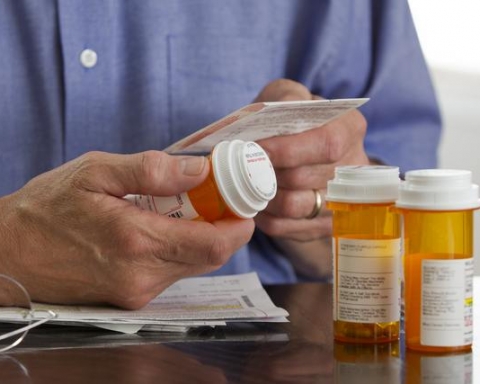When we think of drug overdose, we usually picture a drug addict dying after taking too much heroin. Or we think of prescription drug addict taking too much of a strong prescription drug like valium, or mixing it with another substance like alcohol (source).
While illegal drug and prescription drug addiction certain increase the risk of overdose, especially when mixed with alcohol, they are not the only culprits.
The reality is that thousands of people overdose on over the counter drugs each year, some of them do it intentionally, but many of them without even realizing it.
The Dangers of Over the Counter Drugs
For example, many people don’t realize that the manufacturer’s recommended dosing for over the counter acetaminophen in two 500 mg tablets or gel caps. The manufacturer recommends that you not take more than 3 grams (or 3,000 mg) within a 24 hour period, which is six pills. However, it’s not uncommon for people to take more than six pills if the initial doses don’t resolve the issue; and they often take these additional doses without waiting the required six hours between doses.
Unfortunately, because acetaminophen is available over the counter, many people don’t realize that it is a potentially dangerous drug. Taking too much could cause severe liver damage and, according to the manufacturer, taking more than 4 grams (4,000 mg or eight pills) within 24 hours can put you over the edge.
Many over the counter pain killers also present a danger from double dosing – taking too much of one drug, or multiple drugs at once. This commonly happens during cold and flu season when people are more likely to take multiple remedies to treat their symptoms. Someone could take a multi-symptom cold medicine to reduce their fever, then take an additional ibuprofen or other pain killer to address their aches and pains, not realizing that the multi-symptom cold remedy already contains the same drug.
Over the counter pain relievers aren’t the only problem. There are several other drugs that can also be dangerous if not taken as directed. These drugs include:
- Dextromethorphan – a common decongestant and cough remedy;
- Caffeine – which is sold in pill form and appears in popular energy drinks;
- Diet pills – which contain stimulants;
- Laxatives and diuretics;
- Motion sickness pills – which are often depressants; and,
- Pseudoephedrine – which is a stimulant.
The consequences for overdosing on any of these drugs can range anywhere from heart damage and dangerous spikes in blood pressure, to long-term nerve damage and seizures.
Over the counter medications can also interact with prescription medications, leading to dangerous side effects.
For example, taking aspirin or ibuprofen with certain antidepressants can increase the risk of stomach and intestinal bleeding.
Preventing Over the Counter Drug Overdoses
The best way to avoid an overdose is to educate yourself on the ingredients and proper dosing for any over the counter medications that you take. Follow the manufacturer’s directions for dosing to the letter, and do not exceed maximum recommended dose per 24-hour period unless you are directed to do differently by your doctor.
If you are taking an over the counter remedy to treat cold or flu symptoms, consider taking individual medications instead of a multi-symptom formula. That way, you’ll only treat the symptoms that you need to treat, and you will be less likely to accidentally double dose.
If you are taking prescription medications, talk to your doctor or pharmacist before adding any over the counter medications to your routine.
What to do if you have overdosed
Signs of an over the counter drug overdose include:
- Nausea, vomiting and/or stomach pain
- Dizziness or drowsiness
- Fever
- Confusion
- Bleeding or bruising; and
- Yellowing of the eyes or skin.
If you, or someone you know suffers from any of these symptoms, seek medical attention immediately.








